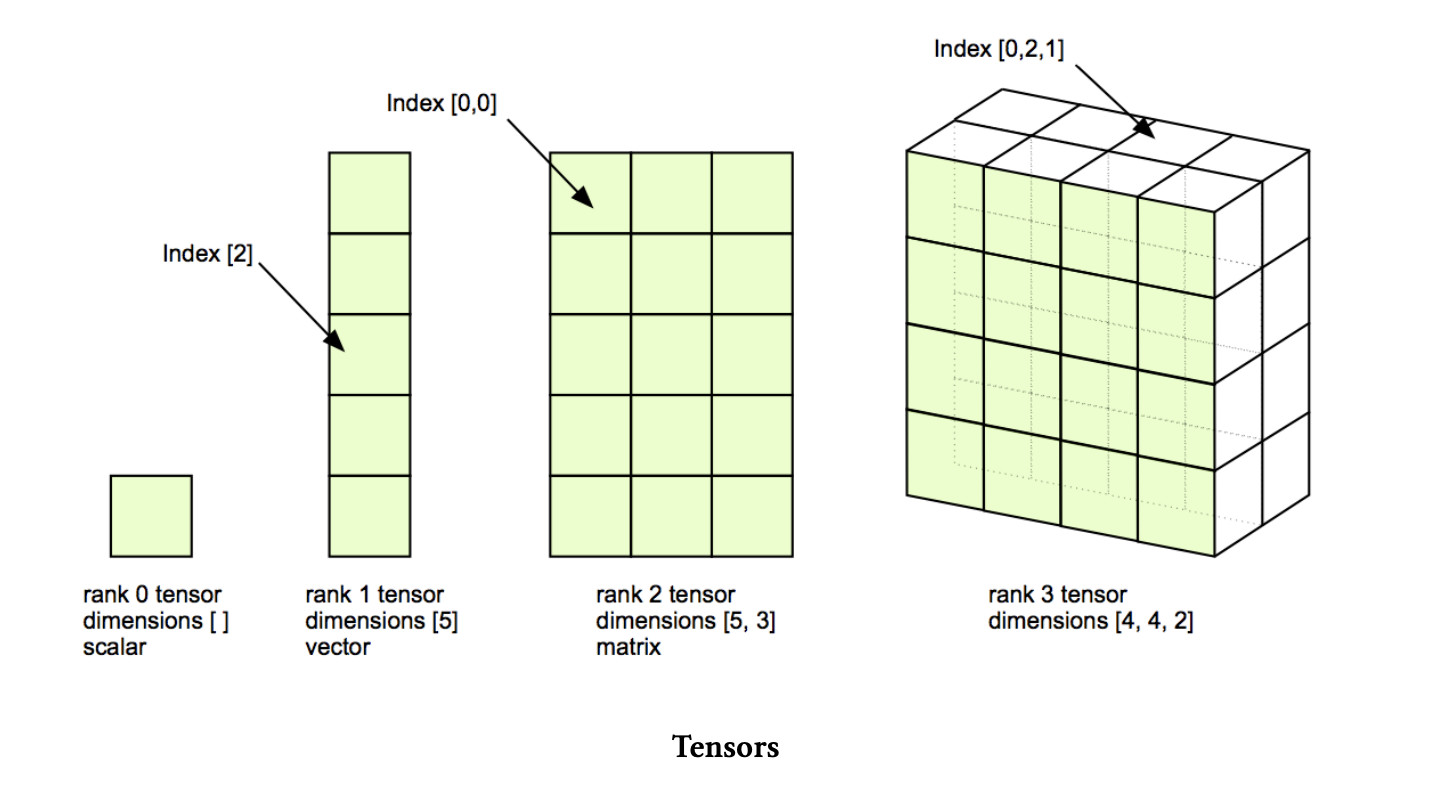Difference between revisions of "What is Tensor?"
(Created page with "__NOTOC__ <center>H. Kemal Ilter<br>2012</center> Category:Blog") |
|||
| (11 intermediate revisions by the same user not shown) | |||
| Line 1: | Line 1: | ||
__NOTOC__ | __NOTOC__ | ||
| − | <center>H. Kemal Ilter<br> | + | <center>H. Kemal Ilter<br>2020</center> |
| + | |||
| + | In simplifying terms, we can think of tensors as multidimensional arrays of numbers, as a generalization of scalars, vectors, and matrices. <ref>Introduction to S. Raschka. 2017. Artificial Neural Networks and Deep Learning, A Practical Guide with Applications in Python. p.7. http://leanpub.com/ann-and-deeplearning</ref> | ||
| + | |||
| + | # Rank 0 Tensor, Scalar, {{#tag:math|\mathbb{R} }} | ||
| + | # Rank 1 Tensor, Vector, {{#tag:math|\mathbb{R}^n }} | ||
| + | # Rank 2 Tensor, Matrix, {{#tag:math|\mathbb{R}^n \times \mathbb{R}^m}} | ||
| + | # Rank 3 Tensor, Tensor, {{#tag:math|\mathbb{R}^n \times \mathbb{R}^m \times \mathbb{R}^p}} | ||
| + | |||
| + | |||
| + | When we describe tensors, we refer to its “dimensions” as the rank (or order) of a tensor, which is not to be confused with the dimensions of a matrix. For instance, an m × n matrix, where m is the number of rows and n is the number of columns, would be a special case of a rank-2 tensor. A visual explanation of tensors and their ranks is given is the figure below. | ||
| + | |||
| + | [[File:Tensors.png]] | ||
| + | |||
| + | {{References}} | ||
[[Category:Blog]] | [[Category:Blog]] | ||
Latest revision as of 11:35, 15 November 2020
2020
In simplifying terms, we can think of tensors as multidimensional arrays of numbers, as a generalization of scalars, vectors, and matrices. [1]
- Rank 0 Tensor, Scalar, [math]\mathbb{R} [/math]
- Rank 1 Tensor, Vector, [math]\mathbb{R}^n [/math]
- Rank 2 Tensor, Matrix, [math]\mathbb{R}^n \times \mathbb{R}^m[/math]
- Rank 3 Tensor, Tensor, [math]\mathbb{R}^n \times \mathbb{R}^m \times \mathbb{R}^p[/math]
When we describe tensors, we refer to its “dimensions” as the rank (or order) of a tensor, which is not to be confused with the dimensions of a matrix. For instance, an m × n matrix, where m is the number of rows and n is the number of columns, would be a special case of a rank-2 tensor. A visual explanation of tensors and their ranks is given is the figure below.
References
- ↑ Introduction to S. Raschka. 2017. Artificial Neural Networks and Deep Learning, A Practical Guide with Applications in Python. p.7. http://leanpub.com/ann-and-deeplearning
